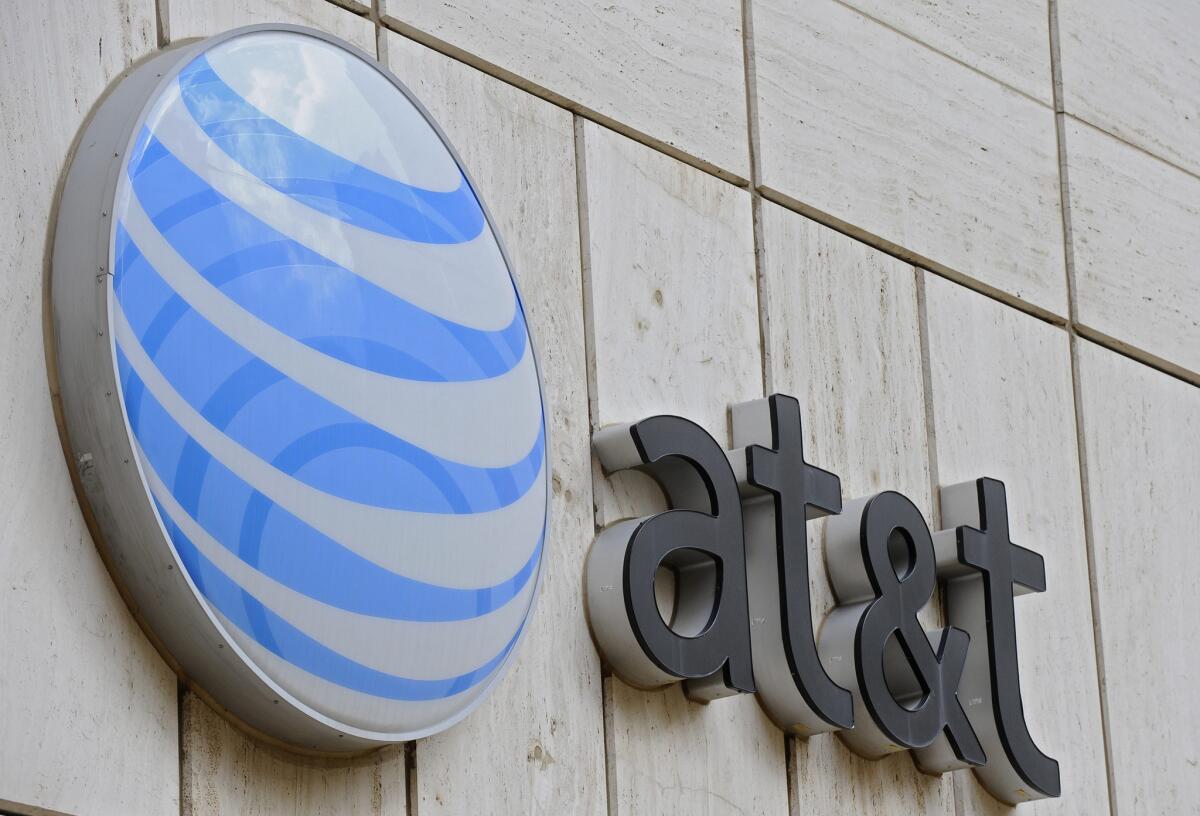AT&T and DirecTV argue merger will benefit customers in FCC filing

By teaming up, AT&T and DirecTV will be a strong competitor to cable giant Comcast Corp. and other pay-TV providers, which will benefit consumers, the two companies told the Federal Communications Commission Wednesday.
“The combination of AT&T and DirecTV will create a pro-competitive, integrated bundle of video and broadband services that provokes a beneficial competitive reaction from cable and results in a demonstrable overall net benefit to consumers,” the two companies said in a public interest statement attempting to make the case for their $48.5-billion deal.
The FCC, along with the Justice Department, are reviewing the transaction, which was unveiled last month.
DirecTV and AT&T are seeking to fill holes that have held them back from competing with cable companies. While DirecTV has over 20 million customers in the United States, it can’t package a broadband service with its video offerings. Conversely, AT&T has a strong broadband business with almost 17 million customers, but has struggled to compete in video. Its U-Verse video service has fewer than 6 million subscribers.
“More and more consumers want broadband bundled with their video services,” the two companies said in their nearly 100-page filing.
AT&T and DirecTV also argue that together their size will give them more clout to negotiate with programmers. Bigger distributors are often able to extract better rates to carry popular channels such as Disney’s ESPN or Viacom’s Comedy Central than smaller providers. AT&T said its costs for acquiring content are “significantly higher” than its main competitors. On its own, AT&T told the FCC, U-Verse cannot cut deals for content that are relatively on par with what Comcast pays.
“AT&T has only one reliable option to lower its content costs in a reasonable frame to compete effectively with Comcast: expand its customer base significantly,” AT&T told the FCC.
For DirecTV, not being able to offer broadband has hurt its long-term prospects. While the company has formed marketing partnerships with broadband providers including AT&T, the companies said in the filing that those arrangements have inherent limitations including “smaller discounts for bundling, uncompetitive broadband speeds and consumer inconvenience and confusion.”
If AT&T and DirecTV are given the green light to combine, the new entity will “generate substantial cost savings and other synergies,” the companies said. Consumers, the companies added, will get better and more competitive bundles of video and broadband services.
The two companies said by combining they would be able to offer consumers “a better value than either company could do on its own.” However, the companies did not go as far as to suggest that their deal could lead to lower bills for consumers.
AT&T also told the FCC that it would agree to comply with the agency’s 2010 Open Internet rules for three years after the DirecTV deal closes. The FCC’s 2010 Open Internet or net neutrality rules were thrown out by a federal court and now the agency is in the process of making new rules.
The proposed AT&T - DirecTV deal came just three months after Comcast said it was buying Time Warner Cable in a sale valued at more than $40 billion. The two deals have media watchdogs worried that all the consolidation will result in fatter bottom lines for big media but few savings for consumers.
“These takeovers are expensive, and consumers end up footing the bill for merger mania,” said Craig Aaron, president of the media reform organization Free Press when AT&T and DirecTV announced their plans.
Smaller cable companies also are concerned about the Comcast and AT&T purchases. Their worry is that if programmers get squeezed by bigger distributors, little operators will end up picking up the tab. In other words, if Comcast and AT&T are able to negotiate cheaper rates, those networks will look to make up the difference from smaller operators.
The Senate Judiciary Committee is scheduled to hold a hearing on AT&T’s purchase of DirecTV on June 24.
Follow Joe Flint on Twitter @JBFlint.
More to Read
From the Oscars to the Emmys.
Get the Envelope newsletter for exclusive awards season coverage, behind-the-scenes stories from the Envelope podcast and columnist Glenn Whipp’s must-read analysis.
You may occasionally receive promotional content from the Los Angeles Times.







